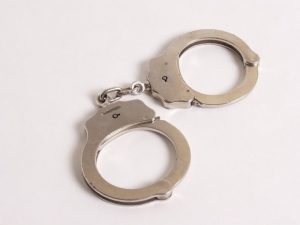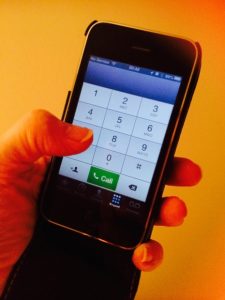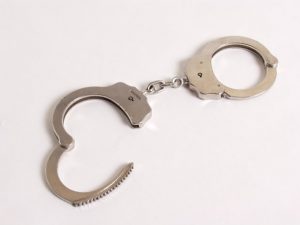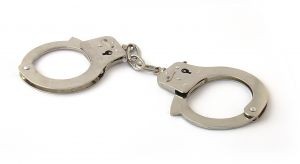Fort Lauderdale’s beaches, nightlife, and year-round sunshine attract millions of visitors annually. From spring breakers to business travelers, tourists flock to Broward County to enjoy everything South Florida has to offer. But what happens when a vacation takes an unexpected turn—when a night out results in an arrest, or a misunderstanding with law enforcement leads to criminal charges?
If you find yourself facing criminal charges in Broward County, whether you’re a local resident or an out-of-town visitor, your choice of legal representation can profoundly impact the outcome of your case. Fort Lauderdale criminal defense attorneys recognize this is where the “local advantage” is essential.
Understanding the 17th Judicial Circuit Court
Broward County’s criminal cases are prosecuted through the 17th Judicial Circuit Court, one of the largest judicial circuits in Florida and the second-largest in the state. The main courthouse is located at 201 SE 6th Street in Fort Lauderdale, with additional locations in Deerfield Beach and Plantation. This circuit handles everything from misdemeanor offenses in County Court to serious felonies in Circuit Court.
The volume and complexity of cases moving through this system is staggering. With a population exceeding 1.9 million residents and millions of visitors each year, Broward County’s courts process tens of thousands of criminal cases annually. Each case moves through a complex procedural framework governed by Florida Statutes and the Florida Rules of Criminal Procedure.
The Critical Role of the State Attorney’s Office
At the heart of every criminal prosecution in Broward County is the Office of the State Attorney for the 17th Judicial Circuit, currently led by State Attorney Harold F. Pryor. This office employs over 460 staff members, including approximately 213 assistant state attorneys (prosecutors) who handle the day-to-day prosecution of criminal cases.
The State Attorney’s Office isn’t a monolithic entity—it’s comprised of specialized divisions and units tailored to different types of crimes. There are prosecutors who focus exclusively on DUIs, domestic violence cases, drug offenses, white-collar crimes, and violent felonies. Each division has its own approach, priorities, and internal policies that can significantly affect how cases are handled.
Why Local Knowledge Matters: The Prosecutor Factor
When you hire a Fort Lauderdale criminal defense attorney with deep roots in the 17th Circuit, you’re not just hiring legal knowledge—you’re hiring relationships, reputation, and institutional memory. Here’s why that matters:
1. Understanding Prosecutorial Tendencies
Experienced local defense attorneys know the individual prosecutors. They understand who is more likely to negotiate, who takes a hardline stance on certain offenses, and who responds better to particular types of evidence or arguments. This isn’t about personal friendships—it’s about professional experience and pattern recognition that develops over years of practice.
A Fort Lauderdale criminal defense attorney who regularly appears in the 17th Circuit knows which prosecutors are newly assigned to a division and still learning the ropes, and which are seasoned veterans with decades of experience. This knowledge allows for more strategic case planning and more effective negotiations.
2. Familiarity with Internal SAO Policies
The Broward State Attorney’s Office has internal guidelines for plea negotiations, diversion programs, and charging decisions that aren’t published or widely known outside the legal community. A local attorney understands which cases might qualify for pretrial intervention programs, which offenses the SAO is currently prioritizing for enforcement, and how policy shifts under new leadership affect case outcomes.
For example, different State Attorneys may have varying approaches to prosecuting first-time offenders, drug possession cases, or specific types of violent crimes. An attorney who’s been practicing in Fort Lauderdale through these changes brings invaluable historical perspective.
3. Credibility and Professional Reputation
Reputation matters in criminal defense. When a respected Fort Lauderdale criminal defense attorney makes a representation to the court or to opposing counsel, their word carries weight. Prosecutors know which attorneys have track records of honesty, thorough preparation, and aggressive but ethical advocacy.
This credibility can make the difference in critical moments—when asking for a continuance, negotiating a plea deal, or making an argument for reduced charges. An out-of-town attorney, no matter how skilled, starts without this established trust.
The Judge Factor: Knowing the Bench
Beyond prosecutors, local knowledge extends to the judiciary. The 17th Judicial Circuit includes dozens of circuit and county judges, each with their own judicial philosophy, courtroom procedures, and pet peeves.
Understanding Individual Judges
A Fort Lauderdale criminal defense attorney who practices regularly in the 17th Circuit knows:
- Which judges are strict about punctuality and courtroom decorum
- Which judges prefer detailed written motions versus oral arguments
- How different judges approach bond hearings, suppression motions, and sentencing
- Which judges have particular expertise or interest in certain areas of law
- How judges typically rule on common pretrial motions
This knowledge isn’t just helpful—it can be case-altering. For instance, knowing that a particular judge is receptive to evidence-based arguments about substance abuse treatment can inform whether to push for drug court versus traditional prosecution. Understanding a judge’s approach to Fourth Amendment issues can determine whether to file a motion to suppress evidence.
Courthouse Culture and Procedures
Every courthouse has its own culture and unwritten rules. The 17th Circuit has specific local procedures for everything from filing motions to scheduling hearings to handling emergency bond matters. According to Florida Rule of Criminal Procedure 3.130, arrested individuals must be brought before a judicial officer within 24 hours for a first appearance—but how those hearings are conducted, what information judges expect, and how to effectively advocate at first appearance varies by jurisdiction.
A local Fort Lauderdale criminal defense attorney navigates these procedures seamlessly because they’re second nature. They know which clerk’s office to contact for expedited matters, how to properly notice a motion in the 17th Circuit, and what documentation judges expect at various stages of proceedings.
The Out-of-Town Visitor: When Local Representation Matters Most
If you’re arrested while visiting Fort Lauderdale—whether for vacation, business, or family—hiring a local Fort Lauderdale criminal defense attorney becomes even more critical. Here’s why:
 Fort Lauderdale Criminal Attorney Blog
Fort Lauderdale Criminal Attorney Blog













